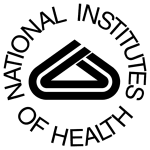 On Friday, Sen. Patrick Leahy (D-VT) sent a letter to Dr. Francis Collins, the Director of the National Institutes of Health (NIH), "to urge [the Director] to consider using march-in rights under the Bayh-Dole Act to ensure greater access to genetic testing for breast and ovarian cancer." The Bayh-Dole Act, which was enacted in 1980, created a uniform patent policy among the many federal agencies that fund research, enabling small business and non-profit organizations -- including universities -- to retain title to inventions made under federally funded research programs. In commemorating the Act's 30th anniversary in 2010, the U.S. Patent and Trademark Office noted that "[t]he legislation is credited with the creation of thousands of new companies and billions of dollars of direct benefits to the U.S. economy" (see "USPTO Recognizes 30th Anniversary of Bayh-Dole Act").
On Friday, Sen. Patrick Leahy (D-VT) sent a letter to Dr. Francis Collins, the Director of the National Institutes of Health (NIH), "to urge [the Director] to consider using march-in rights under the Bayh-Dole Act to ensure greater access to genetic testing for breast and ovarian cancer." The Bayh-Dole Act, which was enacted in 1980, created a uniform patent policy among the many federal agencies that fund research, enabling small business and non-profit organizations -- including universities -- to retain title to inventions made under federally funded research programs. In commemorating the Act's 30th anniversary in 2010, the U.S. Patent and Trademark Office noted that "[t]he legislation is credited with the creation of thousands of new companies and billions of dollars of direct benefits to the U.S. economy" (see "USPTO Recognizes 30th Anniversary of Bayh-Dole Act").
As a result of the concern that U.S. taxpayers should not have to pay businesses for inventions that the public has already paid for, legislators added a section to the Act that gave the government "march-in" rights. Recently, a handful of groups filed a petition with the NIH requesting the agency to exercise these march-in rights over the anti-AIDS drug ritonavir, exclusively sold by Abbott Laboratories (see "Groups Petition for NIH Exercise of March-in Rights over Abbott Laboratories' Norvir®," which includes a discussion of the statute and regulation governing the exercise of the government's march-in rights under the Bayh-Dole Act, as well as a recent history of requests that the government exercise such rights).
In encouraging the NIH to exercise its march-in rights with respect to the Myriad's BRCA test, Sen. Leahy (above right) indicates that:
Myriad's genetic test, which was developed with federally-funded research, is truly important for public health. Myriad is the only provider of this test because it is covered by patent protection. Unfortunately, testimony before the United States Patent and Trademark (USPTO) revealed that Myriad does all of this testing in-house, and charges between $3,000 and $4,000.
The letter notes that while the Supreme Court determined last month in Association for Molecular Pathology v. Myriad Genetics, Inc. that a naturally occurring DNA segment is a product of nature and not patent eligible merely because it has been isolated, the Court also held that cDNA is patent eligible because it is not naturally occurring (albeit with the caveat, which the letter does not address, that a "very short series of DNA may have no intervening introns to remove when creating cDNA," and therefore, "a short strand of cDNA may be indistinguishable from natural DNA"). "As a result," Sen. Leahy suggests that "Myriad may continue to be the only company able to provide women with the genetic testing they need to make important health care decisions."
 Sen. Leahy explains that because "the Bayh-Dole Act . . . gives the government tools, known as 'march-in rights,' to provide greater access to the subject invention in appropriate situations," "[t]he government can require the patent holder to grant a license to the patent on reasonable terms." He notes that "[i]f the patent owner refuses, the government can directly license the patent in limited circumstances, including if it 'is necessary to alleviate health or safety needs which are not reasonably satisfied' by the patentee." Indicating that "Myriad's patents were based in part on federally-funded research," and stating that the health benefits and healthcare cost savings of genetic testing for breast and ovarian cancer are clear, Sen. Leahy expresses "concern that the health needs of the public are not reasonably satisfied by the patentee in this situation because testimony presented to the USPTO made clear that many women are not able to afford the testing provided by Myriad." He therefore encourages the Director to consider using the government's march-in rights with respect to the Myriad's BRCA test.
Sen. Leahy explains that because "the Bayh-Dole Act . . . gives the government tools, known as 'march-in rights,' to provide greater access to the subject invention in appropriate situations," "[t]he government can require the patent holder to grant a license to the patent on reasonable terms." He notes that "[i]f the patent owner refuses, the government can directly license the patent in limited circumstances, including if it 'is necessary to alleviate health or safety needs which are not reasonably satisfied' by the patentee." Indicating that "Myriad's patents were based in part on federally-funded research," and stating that the health benefits and healthcare cost savings of genetic testing for breast and ovarian cancer are clear, Sen. Leahy expresses "concern that the health needs of the public are not reasonably satisfied by the patentee in this situation because testimony presented to the USPTO made clear that many women are not able to afford the testing provided by Myriad." He therefore encourages the Director to consider using the government's march-in rights with respect to the Myriad's BRCA test.
Interestingly, of the ten patents that Myriad recently asserted against Ambry Genetics (see "Myriad Genetics Files Suit Against Ambry Genetics for Genetic Diagnostic Testing of BRCA Genes"), only two (U.S. Patent Nos. 5,747,282 and 5,753,441) are assigned (on their face) to the U.S. government (as well as to Myriad and the University of Utah Research Foundation). Of the remaining patents, one (U.S. Patent No. 5,709,999) is assigned to Myriad, the Centre de Recherche du Chul (Sainte-Foy, Canada), and the Cancer Institute (Tokyo, Japan); two (U.S. Patent Nos. 5,837,492 and 6,033,857) are assigned to Myriad, Endo Recherche, Inc. (Sainte-Foy, Canada), HSC Research & Development Ltd. (Toronto, Canada), and the Trustees of the University of Pennsylvania; three (U.S. Patent Nos. 5,654,155, 5,750,400, and 6,051,379) are assigned to OncorMed, Inc.; one (U.S. Patent No. 6,951,721) is assigned to Gene Logic Inc.; and one (U.S. Patent No. 7,250,497) is assigned to Myriad alone. A search of the USPTO's Assignments on the Web for Patents (AOTW-P) database indicates that Myriad assigned the '999, '492, and '857 patents to the University of Utah Research Foundation, and that the '155, '400, '379, and '721 patents are assigned to Gene Logic Inc. and Myriad.
Patent Docs thanks Hal Wegner for alerting the patent community to Sen. Leahy's letter.